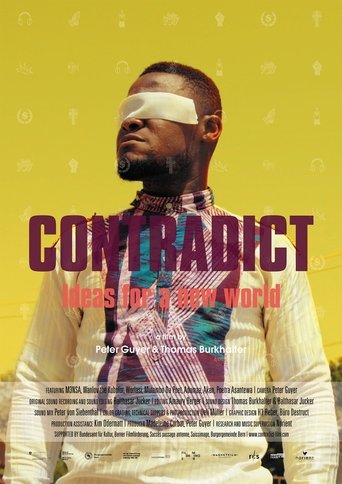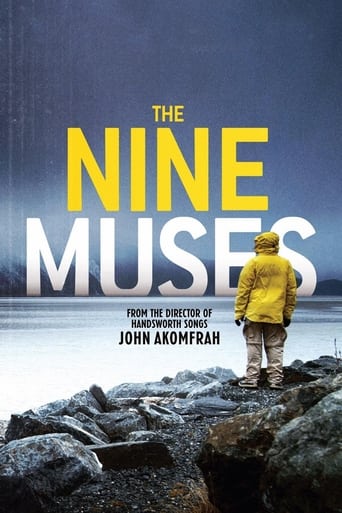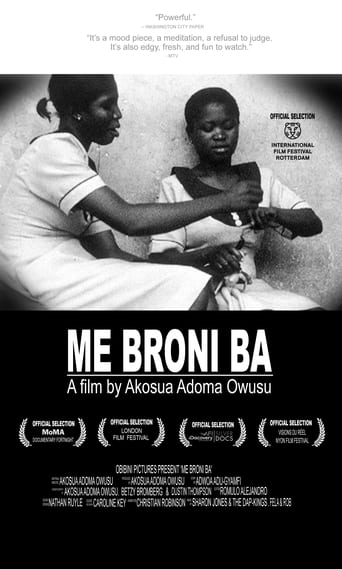Best Ghanian documentary movies
A curated collection of popular documentary movies from Ghana.

Contradict (2020)
Contradict (2020)
When two friends collect money for the so-called "suffering in America" in the streets of Accra, is it for fun, political provocation, or a prophecy? Two Swiss filmmakers will answer these questions with the help of seven musicians from Ghana-M3NSA, Wanlov The Kubolor, Adomaa, Worlasi, Akan, Mutombo Da Poet, and Poetra Asantewa-who have written new songs and produced video clips especially for the documentary film Contradict.

The Nine Muses (2010)
The Nine Muses (2010)
Part documentary, part personal essay, this experimental film combines archive imagery with the striking wintry landscapes of Alaska to tell the story of immigrant experience coming into the UK from 1960 onwards.

My White Baby (2009)
My White Baby (2009)
Me Broni Ba is a lyrical portrait of hair salons in Kumasi, Ghana. The tangled legacy of European colonialism in Africa is evoked through images of women practicing hair braiding on discarded white baby dolls from the West. The film unfolds through a series of vignettes, set against a child's story of migrating from Ghana to the United States. The film uncovers the meaning behind the Akan term of endearment, me broni ba, which means “my white baby.”

Singing Fishermen of Ghana (1964)
Singing Fishermen of Ghana (1964)
This film documents work songs of a fishing community in Ghana
Jaguar (1957)
Jaguar (1957)
A Berlinale FIPRESCI Special Mentioned short musical documentary.
Freedom for Ghana (1957)
Freedom for Ghana (1957)
Independence Day celebrations in Ghana, including ceremonies and pageants and the opening of the Ghana Parliament by the Duchess of Kent. The commentary makes a strong plea for racial tolerance, as well as mentioning the possibility of united all-black African continent.

Asante Market Women (1982)
Asante Market Women (1982)
As retailers, wholesalers, and negotiators, Asante women of Ghana dominate the huge Kumasi Central Market amid the laughter, argument, colour and music. The crew of this `Disappearing World' film have jumped into the fray, explored, and tried to explain the complexities of the market and its traders. As the film was to be about women traders, an all female film crew was selected and the rapport between the two groups of women is remarkable. The relationship was no doubt all the stronger because the anthropologist acting as advisor to the crew, Charlotte Boaitey, is herself an Asante. The people open up for the interviewers telling them about their lives as traders, about differences between men and women, in their perception of their society and also about marriage.